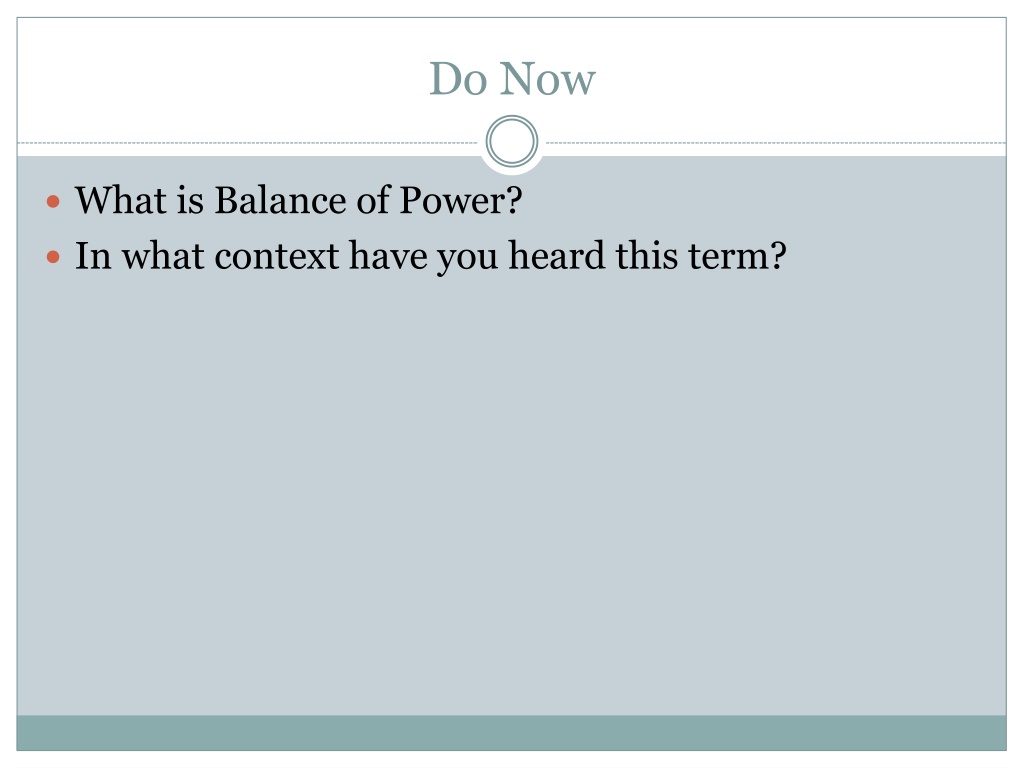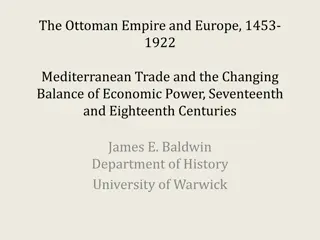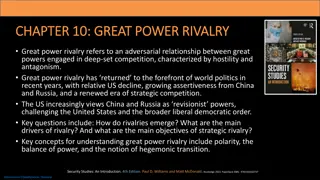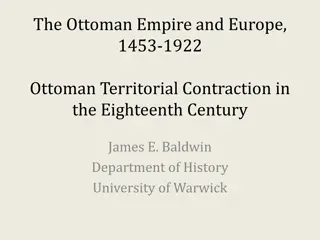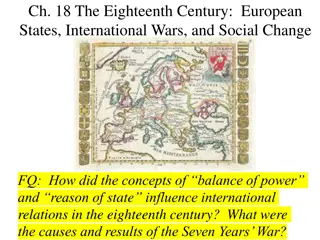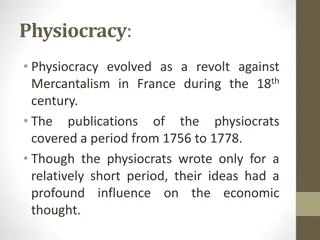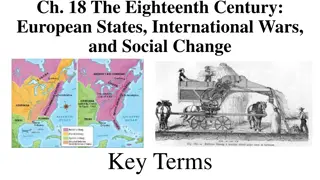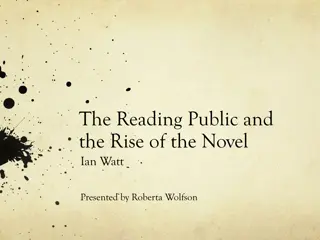Understanding Balance of Power in 18th Century Europe
Balance of power in 18th-century Europe was a concept where great powers aimed to maintain equilibrium to prevent one nation from becoming too powerful. This balance was evident in events like the War of the Austrian Succession and the Diplomatic Revolution of 1756, which reshaped alliances and rivalries among European powers. The rise of balance of power politics was influenced by factors like loss of religious antagonisms, territorial expansion by absolutist monarchs, and global commercial rivalries. The concept played a crucial role in shaping diplomatic relations and conflicts during this period.
- Balance of Power
- 18th Century Europe
- War of the Austrian Succession
- Diplomatic Revolution
- European Powers
Download Presentation

Please find below an Image/Link to download the presentation.
The content on the website is provided AS IS for your information and personal use only. It may not be sold, licensed, or shared on other websites without obtaining consent from the author. Download presentation by click this link. If you encounter any issues during the download, it is possible that the publisher has removed the file from their server.
E N D
Presentation Transcript
Do Now What is Balance of Power? In what context have you heard this term?
Balance of Power in 18th Century Europe THE WAR OF THE AUSTRIAN SUCCESSION, THE DIPLOMATIC REVOLUTION OF 1756 AND THE SEVEN YEARS WAR
Objectives Today we will be able to identify and explain how national rivalries and alliances created a balance of power between the main powers of Europe in the 18th century. We will also be able to identify how these historic rivalries were marginalized due to contemporary situations as illustrated in the Diplomatic Revolution of 1756.
What is Balance of Power? Balance of power states that great powers should be in equilibrium. One power should not be allowed to become too powerful. The decline of one power could threaten the balance of power if another power considerably enhances its strength.
The Rise of Balance of Power Politics A rise in balance of power politics came as a result of The loss of religious antagonisms as the cause of conflict. Absolutist monarchs adding to their territories. Global commercial rivalries.
The War of the Austrian Succession (1740-1748) This war revealed the fundamental principle of balance of power politics in 18thcentury Europe. With the death of Austrian King Charles VI, Austria became unstable. Frederick the Great invaded Silesia, which was a part of the Austrian Empire. Silesia had many resources, and a textile, metallurgical and mining industry. Maria Theresa of Austria was able to commit Hungarian troops to fight.
The War of Austrian Succession (continued) Further fearing Prussian power, other states, such as Russia, Sweden, and Denmark also allied with Austria. France and Spain allied with Prussia in hopes of defeating the Habsburg Austrian Empire. France wanted the Austrian Netherlands Spain wanted to recapture influence in Italy Great Britain entered the war and allied with Austria, because it was a protector of Hanover, which was threatened by Prussia and France. Who won?!?!?! https://www.youtube.com/watch? v=2P680-32Qa8
The Outcome of the War of the Austrian Succession Prussia gained Silesia, which provided them with greater population, abundant coal and iron, and a thriving textile industry. This made Prussia a major player in the European balance of power.
The Diplomatic Revolution of 1756 An situation occurred which would have been unthinkable prior to 1756. Great Britain, again, feared an attack on Hanover by France, so Britain and Prussia signed a defensive alliance called the Convention of Westminster. This meant that Britain was now an ally of Austria s major eighteenth century enemy. This also opened the door to a defensive alliance between Austria and France, aimed at dismembering Prussia. France would help Austria s attempt to gain supremacy in central Europe, an unthinkable alliance a few years earlier. These shifting alliances are known as the Diplomatic Revolution
The Seven Years War The first truly global conflict. Battles in Europe, North America, the Caribbean and India. France and England began fighting in North America in 1754. Fighting in Europe began in 1756.
Balance of Power Considerations Alarmed by the expansion of Prussian power, Austria allied with France and Russia Austria s goal was to recapture Silesia. Prussia allied with Britain, due to Britain being an enemy of France and Britain fearing an incursion on Hanover by France.
Outcomes of the Seven Years War The British national debt doubled and the French experienced a financial crisis as well. The Treaty of Paris (1763) recognized Prussia s claim to Silesia in exchange for independence in Saxony. Canada became British. France also gave all lands east of the Mississippi River. France retained some islands in the Caribbean. The balance of power in Europe had been preserved.
Exit Ticket Respond to the prompt in complete sentences: What was the doctrine of balance of power, and how did it influence the diplomatic revolution of 1756?
